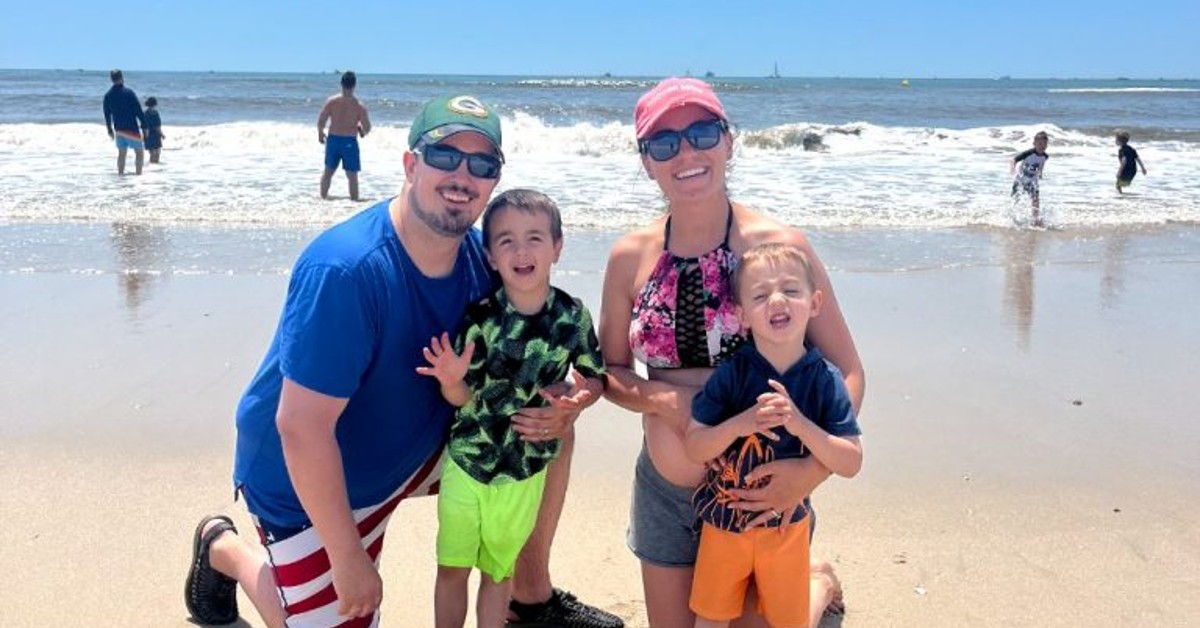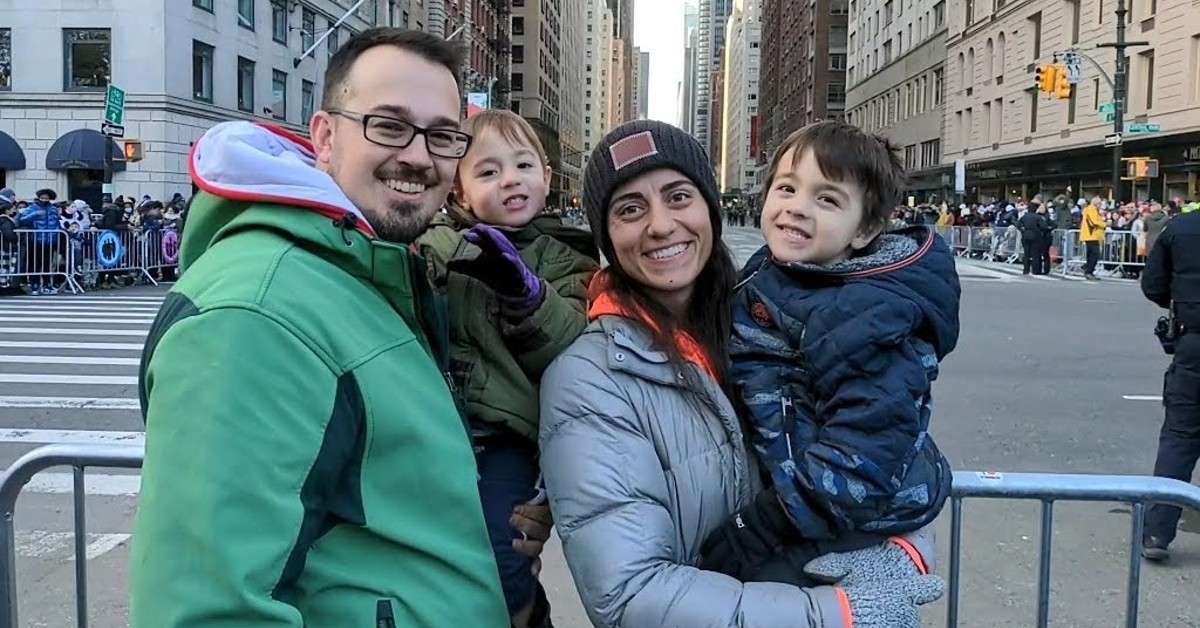Sports injuries led Michael Harper to a career as a sports medicine physician.
Michael Harper had his career path figured out by the time he was in fourth grade. He’d play football and tuba.
Today, he’s a non-operative interventional sports medicine physician with Orthopedics & Sports Medicine BayCare Clinic in Manitowoc. Harper laughs when recalling his adolescent childhood career plans.
“I think in fourth grade we had a write-a-letter-to-your-18-year-old-self (assignment) and that’s what I remember putting in there,” Harper says. “I wanted to play football for the Wisconsin Badgers and play tuba on the sidelines for them at the same time.”
Things didn’t go as planned. Injuries saw to that, says Harper, who grew up in the Madison area.
“My freshman year of high school, actually, on Friday the 13th, the very third practice of the year, I was going up for a catch and I dove – we didn’t have pads on yet – and landed on my shoulder and I actually broke my collar bone,” Harper says.
Series of sports injuries
It was the first of several injuries that plagued the three-sport athlete – he played football, wrestled and was a track and field athlete, a pole vaulter – and ended his hopes of a Badgers football career.
The silver lining, Harper says, is that he became friends with his high school athletic trainer and grew fascinated with sports medicine.
“Almost every season, for every sport, I was seeing him for injuries,” Harper says. “So that kind of changed my career trajectory. … I couldn’t stay healthy enough to even get any film or anything for any scouts to see. But I did develop a passion for the musculoskeletal system, learning about my own injuries.”
As for that other career plan to play tuba on the Badgers’ sidelines?
“I ended up becoming a choir boy and being in choir my junior and senior year,” he says.
Medical training pays off
Harper earned a bachelor’s degree in athletic training from the University of Wisconsin-La Crosse and was certified as an athletic trainer. That helped tremendously when he attended medical school, he says.
“Freshman year, you’re right away treating patients and getting hands on with the athletes,” he said. “I wanted that early access to getting involved with the care of the athletes.
“It made me really realize that I wanted to do something more. I wanted to become a doctor … to have more of that ownership and control of my patients and have that higher level of training.”
When Harper attended medical school, that prior hands-on experience with patients, combined with his experience shadowing a sports medicine physician, better prepared him to earn a medical degree.
Harper earned his medical degree from the Medical College of Wisconsin in Milwaukee. He completed his residency in Physical Medicine and Rehabilitation at Medical College of Wisconsin. He was fellowship trained in Sports Medicine at the Hospital for Special Surgery in New York.
Today, he sees patients in Manitowoc
Harper specializes in regenerative medicine, also known as orthobiologics, which taps into the body’s ability to initiate a healing response. He also specializes in radio frequency ablation for patients with advanced arthritis that cannot undergo surgery. It’s an injection that uses a heated needle to burn nerves that are sending pain sensations.
Harper treats acute and chronic orthopedic conditions with the goal of easing pain and improving function. To help patients achieve their wellness goals, he uses non-operative measures that include physical therapy, medications, bracing and injections using ultrasound and fluoroscopic guidance.
Specialty care team
Teamwork is important in his practice, Harper says, just as it was during his days as a certified athletic trainer.
“Now my team is just a little bit different,” he says. “I have a physical therapist, I have the surgeon that I work with, the primary care provider, as well as … the patient themselves.”
Patient participation in health care treatment is key, Harper says.
“The patients that I see the most change in are the ones that do buy into the (care) plan. They put the work in,” he says. “If the patient isn’t bought in … they’re not going to be seeing the outcome that they want.”
Educating patients on the importance of being an active participant in their health care is a key part of his patient care philosophy, Harper says.
“We both provide effort to get them better,” he says.
When he’s not treating patients, Harper spends time with his growing family. He and wife Allison have two young children and are expecting a third.
“They take up a majority of my time as far as playing with them, reading books, running around,” he says.
Harper also spends time with extended family near Tomahawk, where they enjoy pontoon boat rides, tubing and campfires.

